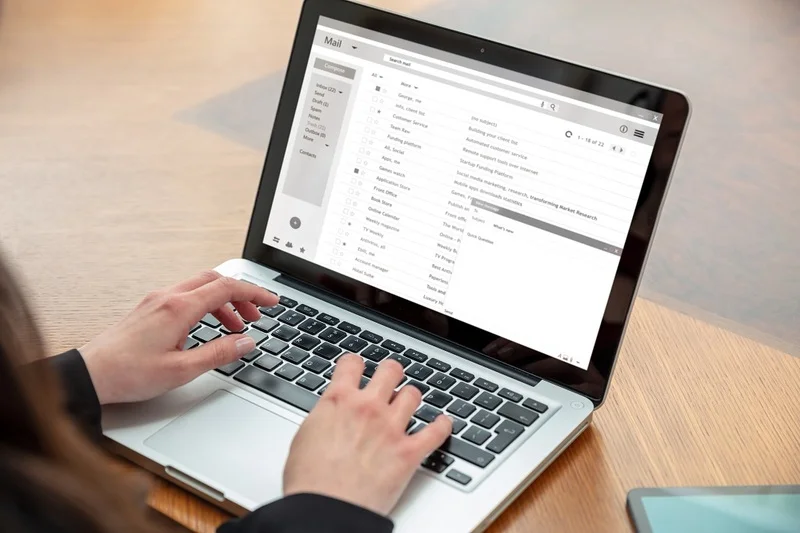For entry-level job seekers—whether newly graduates or those with a sparse career path—a job interview can spell a world of difference in their professional journey. Hence, it’s important to understand that zero experience will not hinder you from landing a job. What matters is how well you sell your value offer through your resume and cover letter.
When responding to an interview request, it is crucial to demonstrate professional email etiquette. A well-crafted email and prompt reply can set a positive tone for future interactions and significantly impact the hiring process. Confirming the interview details promptly shows your commitment and helps in interview confirmation.
Suppose your job search tools caught the attention of a hiring manager. What’s next? Are you ready to get a response from the hiring manager? The goal is to make a great impression on the employer. So, are you wondering how to respond to an interview request? Before anything else, first, we have to define an interview request email. Make sure to clarify the interview schedule to avoid any confusion.
What is an Interview Request Email?
An interview invitation email is sent by a hiring manager to a potential candidate. This happens once a job hopeful submitted their resume and it caught the attention of the potential employer. And while in some instances the hiring manager calls the applicant to request for an interview, most of the time hiring managers simply send out an interview request email.

How to Respond to an Interview Request
What should you do if you finally get an interview confirmation email? How do you respond to an interview request? We will guide you on how to respond to an interview request through some interview tips along with a couple of example emails. Read on!
1. Respond promptly.
You don’t let the hiring manager wait for your response. Reply to an interview request email within the first 24 hours. A simple acknowledgement will suffice. Remember, multiple candidates might be in a queue. Your quick reply might have given you the most convenient interview time slot. Otherwise, your delayed response might give of the company name wrong impression that you’re not interested anymore, impelling the hiring manager to close your application and proceed to the next qualified candidate.
2. Observe the proper etiquette in writing an email response.
Here’s a quick guide on how to respond to a job interview request:
- Be grateful. Express your gratitude and enthusiasm in your interview confirmation. It will show your respect and interest in the job application.
- Be direct. Get to the point immediately. You do not need to restate your qualifications. Save this kind of energy for the actual interview.
- Stay professional. Keep your tone professional throughout your interview response email. Avoid text abbreviations. Don’t use emojis since you are not in a group chat with your friends.
- Be formal. Use formal greetings and salutations, and address the recruiter with their last name.
- Proofread. Check your email response to the interview by reading it line by line. Ensure there are no typographical or grammatical errors. A sloppy email can adversely affect your first impression.
- Reply to all. Don’t exclude anyone from the email thread, so that your job application will still be on track.
Understanding and applying professional email etiquette is crucial. It reflects on your communication skills and respect for the interviewer’s recruiter. A well-crafted email can set a positive tone for future interactions and significantly impact the hiring process.
3. Confirm the interview email.
When you respond to an interview request, don’t forget to provide your availability. Some interview request emails include important information such as the location and interview schedule. It might take place in an office, through a phone interview, or in an online interview. Whatever the case, let the hiring manager know your availability if they do not provide an interview time. Ask for an alternative time if you have a conflict with their interview date. Let them know the days and times that work best for you.

4. Show appreciation and interest.
When responding to an interview request, it’s essential to show appreciation and interest in the opportunity. This can be done by expressing gratitude for the first invitation to interview, and highlighting your enthusiasm for the role and the company. Here are some tips to help you show appreciation and interest:
- Start your interview confirmation email by thanking the hiring manager for the opportunity to interview.
- Express your excitement about the role and the company, and highlight your relevant skills and experiences.
- Show that you’ve done your research on the company by mentioning its mission, values, or recent achievements.
- Use phrases such as “I’m thrilled to have the opportunity to discuss my qualifications” or “I’m looking forward to learning more about the company culture.”
Example:
Dear [Hiring Manager],
I wanted to express my sincere gratitude for inviting me to interview for the [Position] role at [Company]. I’m thrilled to have the opportunity to discuss my qualifications and learn more about the company culture. With my [Number] years of experience in [Industry/Field], I’m confident that I would be a great fit for this position.
Thank you again for considering my application. I’m looking forward to our conversation on [Date] at [Time].
Best regards, [Your Name]
5. Ask questions.
There might be instances wherein the interview confirmation email doesn’t contain all the necessary details. If so, don’t hesitate to ask for additional information. You could ask for further information about the company, hiring process, and interview schedule.
6. Add your contact information.
Your phone number and email address in your resume are not enough. Still, provide your contact information below your closing greeting to ensure interview confirmation. This contact info makes it easier for future correspondences.
7. Go back to the job description.
Review the job description and your interview schedule. Is this the job that you really want to pursue? This is one way to find out if you want to continue the application process. It is also a great way to remind yourself of the job you applied for. Lastly, this is where you’ll know if you have to prepare for your job interview. Preparing for interview questions based on the job description is crucial for better preparation.
Preparing for the Job Interview
Preparing for a job interview is a crucial step in the hiring process. It shows that you’re interested in the position and willing to put in the effort to learn more about the company and the role. Here are some steps to help you prepare for a job interview:
1. Research the company.
Researching the company is essential to understanding its mission, values, and culture. This information can be found on the company’s website, social media, or news articles. You can also use this opportunity to learn about the company’s products or services, its target audience, and its competitors. This knowledge will help you to ask informed questions during the interview and show your interest in the company.
2. Review the job description.
Reviewing the job description is crucial to understanding the skills and qualifications required for the role. Make a list of the key qualifications and think about how your skills and experiences align with them. This will help you to prepare examples of how you’ve applied your skills in previous roles and to show how you can contribute to the company.
3. Align your skills and experiences with the job requirements.
Aligning your skills and experiences with the job requirements is essential to showing that you’re a strong candidate for the role. Think about specific examples of how you’ve applied your skills in previous roles and how they can be applied to the job you’re interviewing for. This will help you to prepare for common interview questions and to show how you can contribute to the company.
Additionally, make sure to:
- Review your resume and cover letter to ensure they’re up-to-date and tailored to the job you’re applying for.
- Practice answering common interview questions, such as “Why do you want to work for this company?” or “What are your strengths and weaknesses?”
- Prepare any materials you may need for the interview, such as copies of your resume or references.
- Plan your outfit and make sure you’re well-groomed and professional.
- Plan to arrive early and be prepared to ask questions during the interview.
By following these steps, you’ll be well-prepared for your job interview and can show the hiring manager that you’re a strong candidate for the role.
Examples of Interview Request Responses
Most interview request emails follow a standard format, which involves asking the job applicant to confirm your availability for the interview. It is important to maintain professional email etiquette when crafting these responses, as it reflects on your communication skills and respect for the recruiter. Even so, the recruiter may ask for other details. As a result, your email response will vary accordingly. If you’re wondering how to respond to an interview request through email, we’ve prepared two examples of job interview request responses.
1. How to respond to an interview request if the hiring manager requests it
Dear Mr. Davis,
Thank you for the interview confirmation for the advertising sales agent role at CAB Company. I am available this Monday at 9:00 AM. I look forward to meeting you and discussing this position in more detail.
Kindly let me know if you need any information before our Monday morning meeting at your offices.
Sincerely,
Wilson Lee (541) 856-7225
2. How to respond to an interview request if the hiring manager asks about a job requirement you don’t have
There’s no need to panic when the employer asks about some job requirements that you lack. You don’t have to lie. Instead, emphasize your willingness to learn. This eagerness to grow and thrive in their company might prove integral.
Dear Mr. Davis, Thank you for considering me as for the advertising sales agent at CAB Company. To answer your question regarding my credentials, I currently don’t have [specific credentials/requirements]. Nonetheless, I can assure you that my current qualifications and skills will more than make up for what I don’t have. I am looking forward to speaking to you soon to express my determination to be an asset to your company. Sincerely, Wilson Lee (541) 856-7225

Nail Your Interview Response and Beyond: Pro Tips for Job Success
As someone starting their career off on the right foot, job applications and interviews can feel like a nerve-wracking experience. The real pressure begins once a prospective company reaches out to request an interview and sets an interview schedule. This is when the spotlight turns on you, and the key is to seize the moment and make it count.
One important stage in your preparation is knowing how to respond to an interview request, signaling to the employer that you are a serious candidate. After learning how to reply effectively, it’s essential to familiarize yourself with interview questions. Preparing for an interview is never easy, which is why our career experts have compiled essential interview tips to help you leave a lasting, good impression here.
Additionally, don’t forget that a strong resume is often your first opportunity to impress. Before responding to that interview request, ensure that your professional resume is in top shape. Take advantage of our resume evaluation to make your resume make a great first impression. For further support, our professional resume writing services will ensure that your skills and experiences are presented in the best possible light.
Final Checklist: Key Points to Remember
Before sending your response to an interview request, make sure to remember the following key points:
- Respond promptly to the interview request, ideally within 24 hours.
- Use a professional email format and tone.
- Confirm the interview details, including the date, time, and location, in your interview confirmation email.
- Show appreciation and interest in the opportunity.
- Proofread your email for spelling and grammar errors.
- Include your contact details, such as your phone number and email address.
- Use a professional closing, such as “Best regards” or “Sincerely.”
- Keep your email concise and to the point, avoiding unnecessary information.
- Use a clear and descriptive subject line, such as “Interview Confirmation for [Position].”
By following these key points, you can ensure that your response to an interview request is professional, effective, and helps you make a positive impression on the person, the hiring manager.








